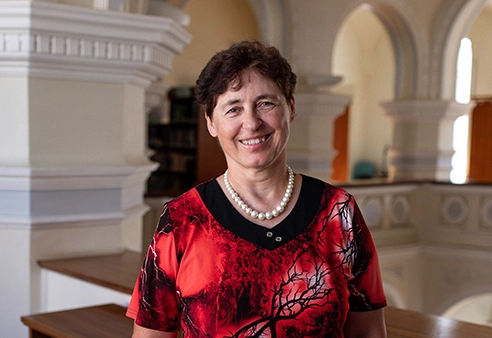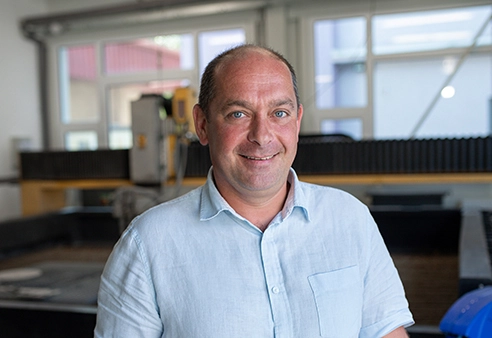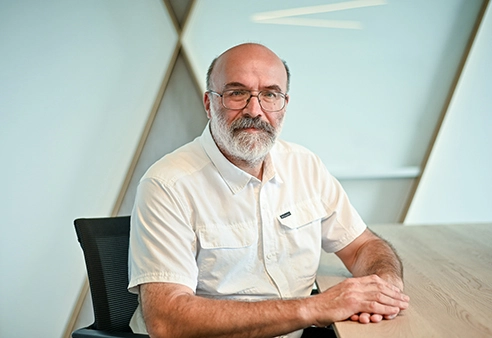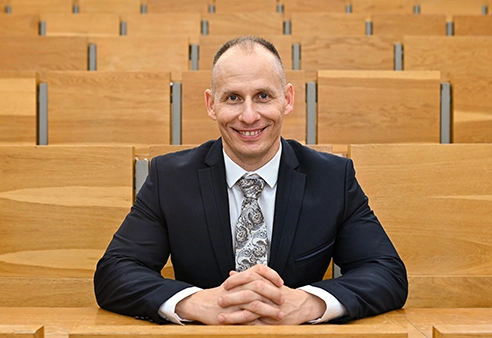Prof. MUDr. Daniela Ostatníková, PhD., is the head of the Institute of Physiology and vice-dean for international relations of the Faculty of Medicine of Comenius University Bratislava. Her science work has long been about researching the effect of sex hormones on specific cognitive abilities in both sexes. She has also spent the last 15 years researching the causes of autism.
One could say the that the origin of Professor Ostatníková’s research is in love. Or, rather, it was the desire to understand her beloved husband, a mathematician, but also the general differences between men and women: what they see, hear and experience. Once Daniela Ostatníková realised that the sex hormone testosterone is at the root of many of these differences, she decided to study it just as she was starting work at the Institute of Physiology.
Even at the beginning, she was able to ignite the passion for this fascinating research in her students, who have been her driving force. “We proved the theory that there is an optimal testosterone level for different cognitive abilities in men and women,” the respected scientist says, describing some of their discoveries. She then moved from researching testosterone to researching autism at a time when almost nothing was known in Slovakia about this developmental disorder. “According to a hypothesis by Professor Baron-Cohen from the University of Cambridge, autistic individuals have extremely male brains due to the prenatal influence of testosterone,” she notes, recalling the theory that formed the basis of her research. “Today, our research supports the hypothesis of the influences of three factors – genetics, sex, and environmental influence.”
The word ‘autism’ originally meant being lonely. And it is not only autistic individuals who were lonely, but also their families, who never received any help either. The situation is different now and autism spectrum disorders are no longer taboo, in part thanks to the research of Professor Ostatníková and her team. In 2013, she founded the Academic Research Center for Autism. It is the only academic institution in Slovakia researching the causes of this neurodevelopmental disorder using interdisciplinary research. “Our centre provides parents and experts with evidence-based information about screening, diagnostics, education and research,” Professor Ostatníková says.
Her scientific team researches the causes of autism in connection to genetics, sex hormones and their metabolism, indigestion, gut microbiota, and sleep and immunity disorders. “For example, we discovered that autistic children have a different gut microbiome. Our hypothesis assumes that if we were to correct the microbiome, for example using tailor-made probiotics, we could potentially positively affect clinical symptoms. 75% of children with autism spectrum disorders suffer from digestive problems,” she explains.
Not only is Daniela Ostatníková a pioneer in autism awareness in Slovakia, she has also participated in creating the legislation that introduced standard procedures for early screening and standard diagnostics of this neurodevelopmental disorder. “Nowadays, the screening is done in primary care paediatrics and during regular check-ups and evaluations of psychomotor development of children.”
Professor Ostatníková considers people with autism spectrum disorders as people who are gifted differently, who feel differently, and who have different perceptions of the world around us. Each one of them is different and unique. Autism does not have a clear cause; it is characterised by a wide variety of various symptoms and concomitant diseases. There is no pharmacological treatment for its basic symptoms.
“My goal as a teacher is to bring up a new generation of doctors and experts that will be in professional contact with people with autism,” Professor Ostatníková says. “I always try to ignite the passion for my scientific field or topic of research in students. But for them to be passionate, I have to be passionate first so that I can inspire them. This is why academia and science are very specific. They create a critical mass and community of people yearning for knowledge, eager to learn. We then form each other’s characters. That is the beauty of research and education.”
Professor Ostatníková dreams of her students continuing her work. In her free time, she likes reading biographical novels and spending enriching time with her family. She likes to travel with her husband and visit new cities and places. “We meet new people and their customs, diversity, culture and differences. It broadens my horizons when working with students from abroad,” the vice-dean for international relations says. Science has been her hobby all her life. After years of research, she now perfectly understands her husband, and this understanding has been the basis of her career in science.
“A scientist’s greatest delight is to do science and see its results be useful in the lives of other people. I’m happy that we can improve the lives of many autistic children, encourage their parents, and give them hope to keep living with this difficult neurodevelopmental disorder.”



